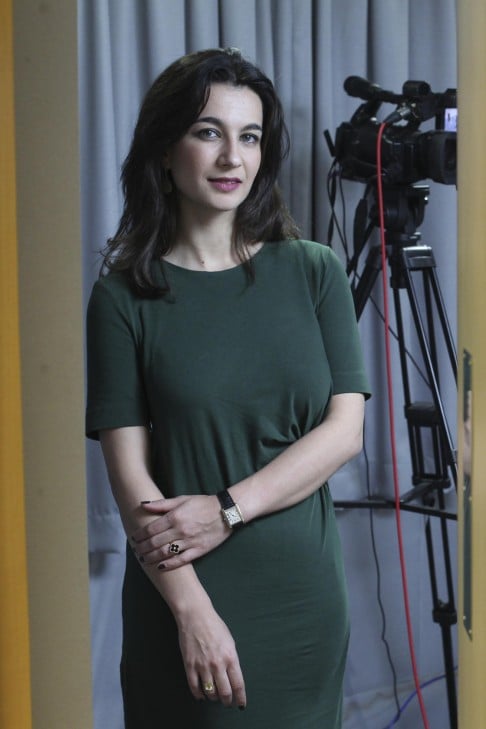BBC war reporter Yalda Hakim talks about her life
An escape from Afghanistan on horseback and the pros and cons of being a female correspondent

NI was six months old when my family fled Afghanistan, in 1983. Before we left, my father had been in Czechoslovakia for seven years studying architecture. When he returned, he found a country on the brink of war and was conscripted into the army. The Soviets had invaded and there was a Communist government in place. Me, my siblings and my parents left in the dark of night and crossed the border to Pakistan - my brother and sister on one horse and me and my mother on another. My father was on foot with the people smuggler. The journey took 12 days and was quite dangerous because the government wanted people to stay and fight. After two years, my dad decided to get the family out (of Pakistan). He had a connection in Australia and we moved to Sydney.
Issues of social justice and global affairs were often discussed at the dinner table. From a young age, I was aware of the political situation in Afghanistan. When I was 10, I'd taken part in anti-Taliban protests in Sydney and Canberra. I recall watching a news story aged seven and thinking, "I want to do what they are doing." At university, I did internships at SBS and ABC - the main public broadcasters in Australia. I was interested in an SBS programme called Dateline - it focused on in-depth stories in far-flung places with reporters using small handycams, a real one-man band. I interned there for a week and that turned into a month, which turned into a year, which turned into paid work. I taught myself how to use a camera and travelled to remote parts of Australia - to Aboriginal communities in the Outback. After seven years I filled the host's shoes, on the condition I could stay on the road.
My first overseas assignment involved heading back to Afghanistan. It was called Yalda's Kabul. I was 24. In many ways my family had romanticised the country, so it was a shock to see it first hand, to see very war-weary people. They weren't the warriors my parents had described them to be. I did a story about children and women who were addicted to opium and meeting these people was different to any other journalistic experience I'd had, because I kept bringing it back to myself and thinking, "What if my family had not left? I could have been one of those girls."
I've been back dozens of times since, including to interview (former president Hamid) Karzai. With each visit I've seen many changes - last year I saw more construction, more women on TV and so many programmes inspired by the West: MasterChef, Afghan Idol, etc. I used to see a lot of women in burqas and now I see a lot of women in bright headscarves.
I was in Iraq a few months ago, embedded with Kurdish soldiers fighting (Islamic State), so I found myself on the front lines and talking with people who had escaped massacres. I didn't feel scared, though. It's often in unexpected situations that you feel in danger. I found myself in a few hairy situations during the Arab spring; in Egypt and Libya a few demonstrations turned ugly: imagine you're the only woman in a crowd of thousands of men and you're trying to get a shot or a piece to camera. Safety is a priority at the BBC - almost on a frustrating level! I'm like, "I wanna go out there and get it", but the BBC have to secure situations and make it safe.
Being a woman can work to your advantage at times - in Yemen being a woman meant I was waved through controlled areas and remote villages. A woman can't speak to men, however, so I wasn't given access. In some societies women are invisible - you can go for days without seeing one and, when you do, they are fully covered. I'd go to a salon and get a blow-dry and chat to the women and that's where I'd sometimes get a story.